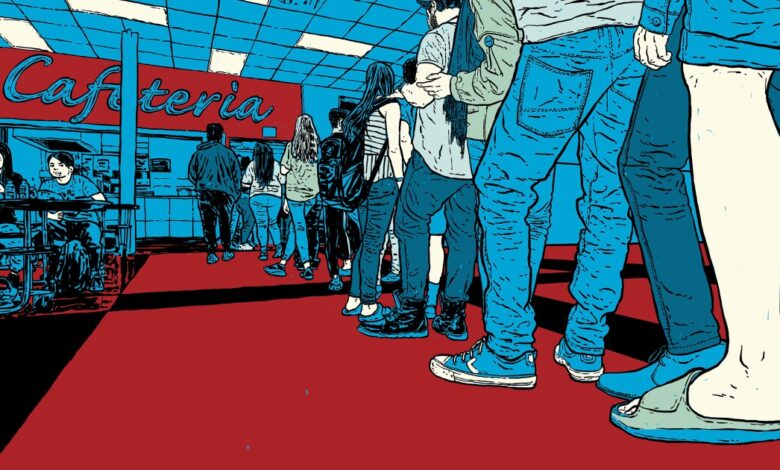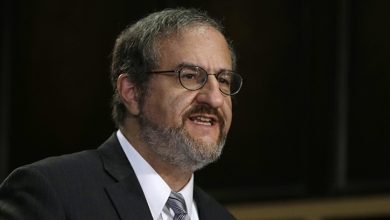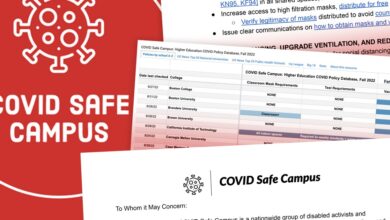A University Asked for Faculty and Staff Volunteers at Dining Halls. The Union Said No.

The University of Wisconsin at Milwaukee has asked faculty and staff members to volunteer at its dining halls due to a staffing shortage. Some campus employees are calling the request an insult — and their union has stated that administrators should be “ashamed of themselves.”
Higher ed has seen this story before. Last year Michigan State University asked its faculty and staff members to do the same thing, and people were incredulous.
UW-Milwaukee’s request demonstrates that, amid colleges’ continuing struggle to hire employees across the board, a shortage of student workers in dining halls is emerging as a persistent challenge.
In an email to faculty and staff members last week, the university requested their “help by donating any time you can find to prepare, serve, and support the dining experience in the UWM residence halls.” Volunteers were asked to sign up for four-hour shifts, but the university said it would “take whatever generosity we can get.”
The same email mentioned that the university this fall would launch a new dining model that will allow residential students to eat as much as they want, as many times as they want. The model’s two main goals, the university said, are to make the campus more welcoming to students and to remedy any food insecurity they may face.
“We are implementing a new dining plan, but that’s not really the reason we’re asking for volunteers,” said Nolan L. Davis, executive director of student life and services.
Some people perceived that there was a desperation element, but that isn’t the case.
Davis said that before the pandemic, about 80 percent of student dining workers returned each year. But now, he said, only 20 percent of student workers return each year, which means that each fall the university must replace 80 percent of the roster.
In 2020 and 2021 the university also sought volunteers, but they came mostly from within the dining-services department, which faced reduced hours and services due to the pandemic, a university spokesperson said. This year, all dining services are back at full capacity, which means that the dining workers who had volunteered in the past two years are now needed in their regular posts.
For that reason, the administration is now seeking volunteers from other departments. “Some people perceived that there was a desperation element, but that isn’t the case,” Davis said. “We ask for volunteers for a host of different events on campus throughout the year. It’s an opportunity to connect with students and see them in a different space.”
An Unpopular Choice
So far, the volunteer system doesn’t seem to be popular among UW-Milwaukee’s faculty and staff members.
From September 3 to 7, only 10 out of 36 volunteer spots were filled, according to a sign-up sheet. The university has more than 6,700 employees.
The American Federation of Teachers Local 3535, which represents the university’s faculty members, staff members, and graduate students, said in a statement that the request was insulting and that the university had joined a trend of employers’ asking staff members to work free to cover for “the irresponsibility and greed of the leadership.”
“The wages of faculty, academic-staff, and grad-student workers at UWM are already abysmal, and raises have lagged far behind inflation,” the union’s statement said. “Yet administrators have the audacity to request even more work from us, with no pay?”
Eric Lohman, a journalism lecturer in the College of Letters and Science and president of the union, said the university is in “damage-control mode.”
Lohman said that the university should have prepared for this shortage, and that if people are needed to work, they should be paid.
Lohman also called the university’s message, coupling the need for volunteers with a statement about food insecurity, offensive. “It’s not a coincidence. They know we do everything we can for our students. Then they say that in order to fight food insecurity, they need our help,” he said. The subject line of the email sent to the staff was “We need your help.”
It’s outrageous. We do invisible labor all the time. Are we supposed to take on more?
When Rachel Buff, a professor and chair of the history department, first read the university’s email, she considered helping out: “I have to say, I thought, ‘Do I have four hours for this?’ But then I realized this is not a good plan.”
Beyond the request for volunteers, there are larger structural issues at play, Buff said. While the new dining plan might work well for residential students, she said, many of the university’s students are commuters, and many of her colleagues don’t make enough money to not be food insecure. Meanwhile, she pointed out that the university’s chancellor, Mark A. Mone, received a 7.5-percent salary increase this year. His new salary is $452,090 annually.
The administration shouldn’t be asking staff members to do more work at no pay, Buff said. “It’s outrageous. We do invisible labor all the time,” she said. “Are we supposed to take on more? Are we the answer to the structural problems with food insecurity?”
Lohman, the union president, said the problem stems from a shift in higher education, with colleges now operating more like businesses. “Administrators make more money, fewer tenure-track positions, tenured positions replaced with adjuncts — it’s the corporatization of the university,” he said. “The asks are getting more and more egregious as the resources dry up.”
When asked about the faculty’s response to the university’s request, Davis, the head of student life, said: “No insult was intended. And this is purely voluntary and temporary.”






